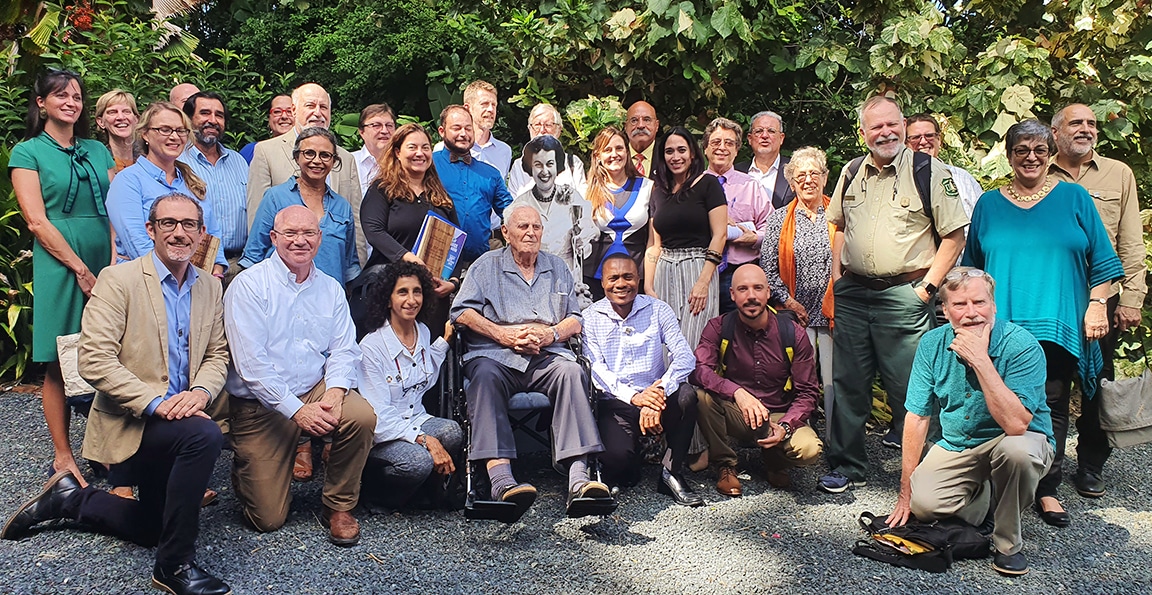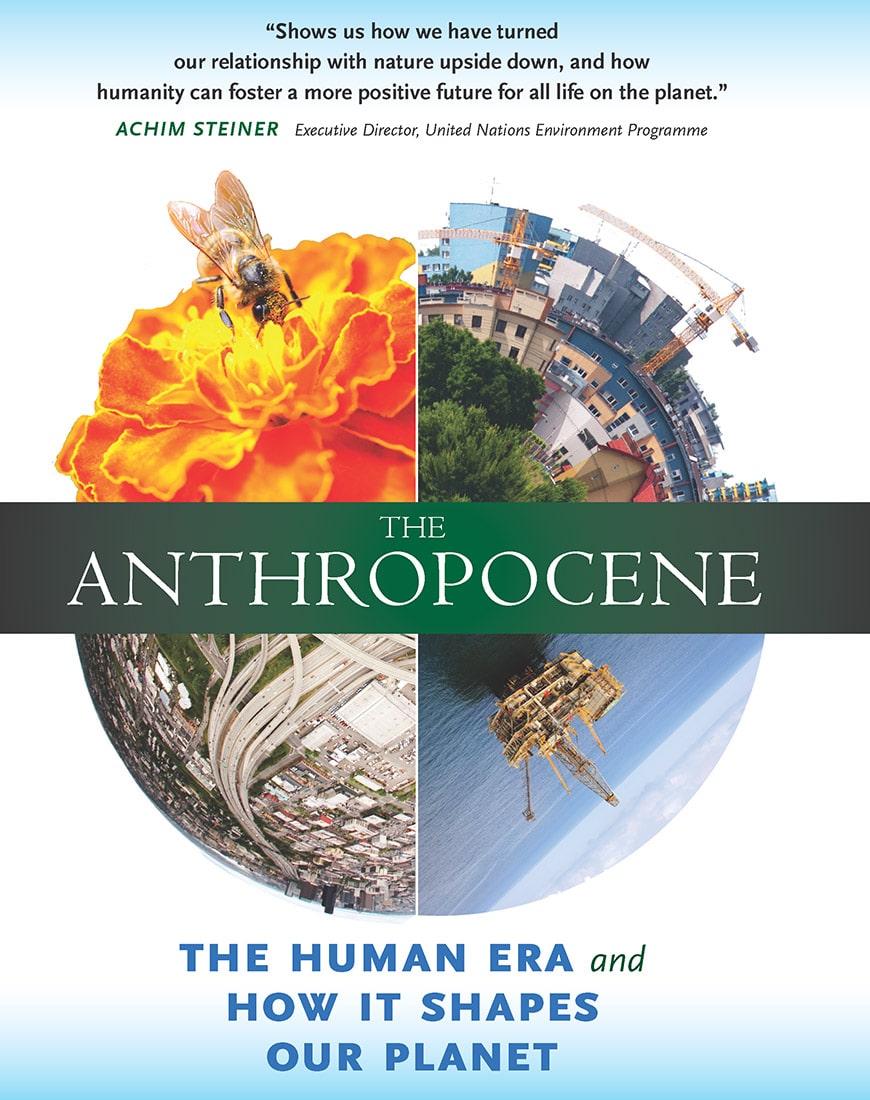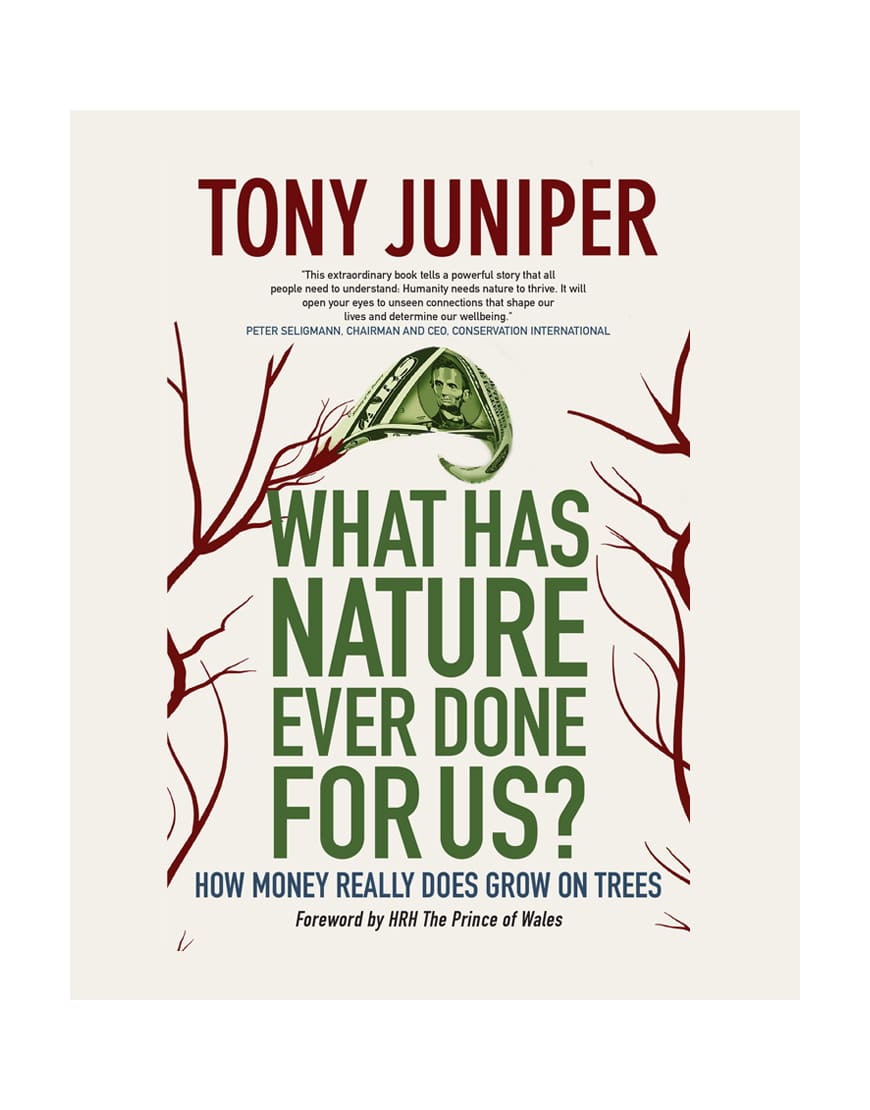Leaders, Educators and Activists take Climate Change Seriously in Puerto Rico
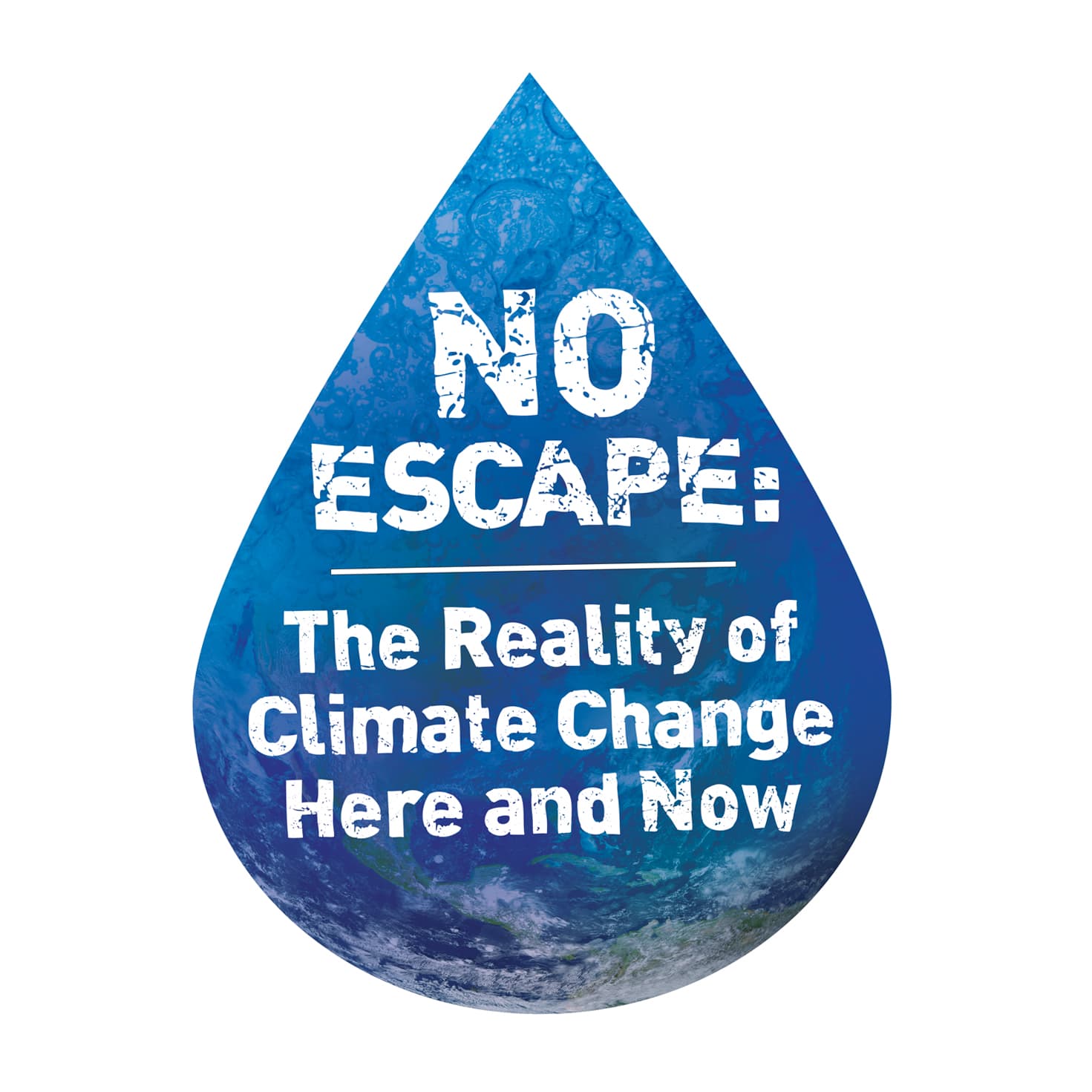
The idea for a meeting in Puerto Rico on the reality of climate change emerged at the World Ayahuasca Conference in May where Synergetic Press exhibited and a number of our authors presented. Deborah Parrish Snyder, publisher, and her Institute of Ecotechnic colleague, Thrity Vakil, and Synergetic author Sir Ghillean Prance, saw at that gathering a powerful display of what a community of like-minded individuals can accomplish across different cultures and languages. Deborah “left the conference with the unmistakable sense that many movements are gathering, stepping up to the front-lines of action.”
Thrity is one of on those people operating on the front-line, and with Ghillean’s agreement to come to Puerto Rico and speak, she went immediately to work bringing together in four months thought-leaders, scientists, researchers, and ecological defenders from across the Island and many disciplines. They met to understand what is known, and develop better ways to support healthy agricultural production, sustainable forestry management, adapt and minimize the environmental and socio-economic impacts from the dramatic changes in climate we are seeing around the planet.
Sir Ghillean Prance, a world expert on the botany and economic uses of neotropical rainforests, has conducted extensive work in the Amazon as Director of the Institute of Economic Botany and VP for Science at the New York Botanical Garden. He is the Director (Emeritus) of the Royal Botanic Gardens, Kew in the UK.
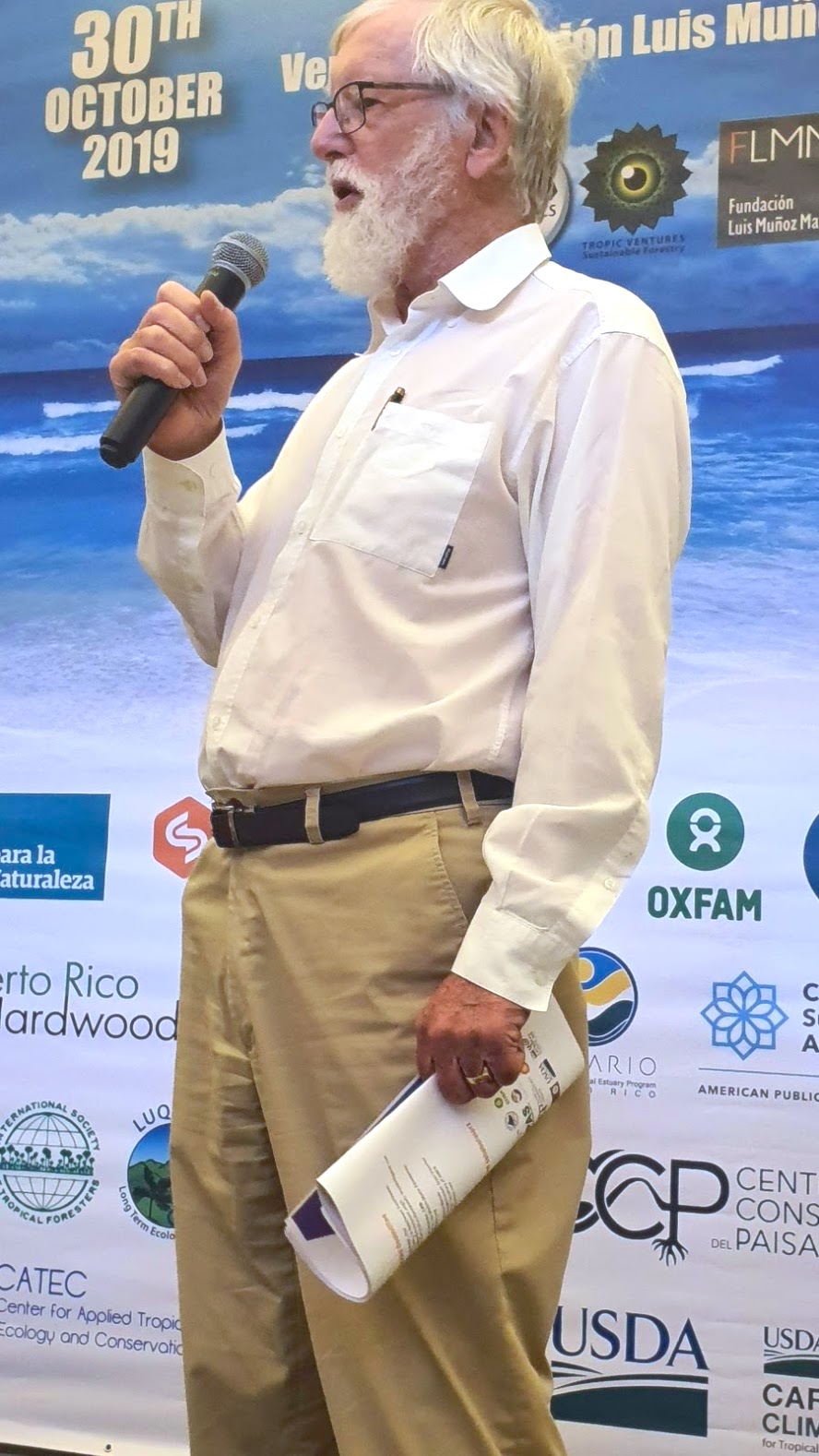
His talk, entitled “The Biological Evidence for Climate Change,” focused on examples of biological climate-change indicators such as those occurring in the phenology of plant-flowering times, bird migrations, and rainfall cycles, the movement of flora toward the poles and to higher elevations in mountain biomes, and the bleaching of coral reefs. His talk opened and closed with the concept of value, first through what is called quantitative ethnobiology, in which the value of various species to local or indigenous cultures is assessed, and the impact of climate change on that value, and in his closing remarks by the imperative to link environmental impact to specific nations or regions of the world: what is the value of a person or society in relation to the consumption of resources by that person or society on a global scale (that of a U.S. citizen versus that of a Bangladeshi citizen, for example)? —Dr. Eben Wood’s Report on the symposium
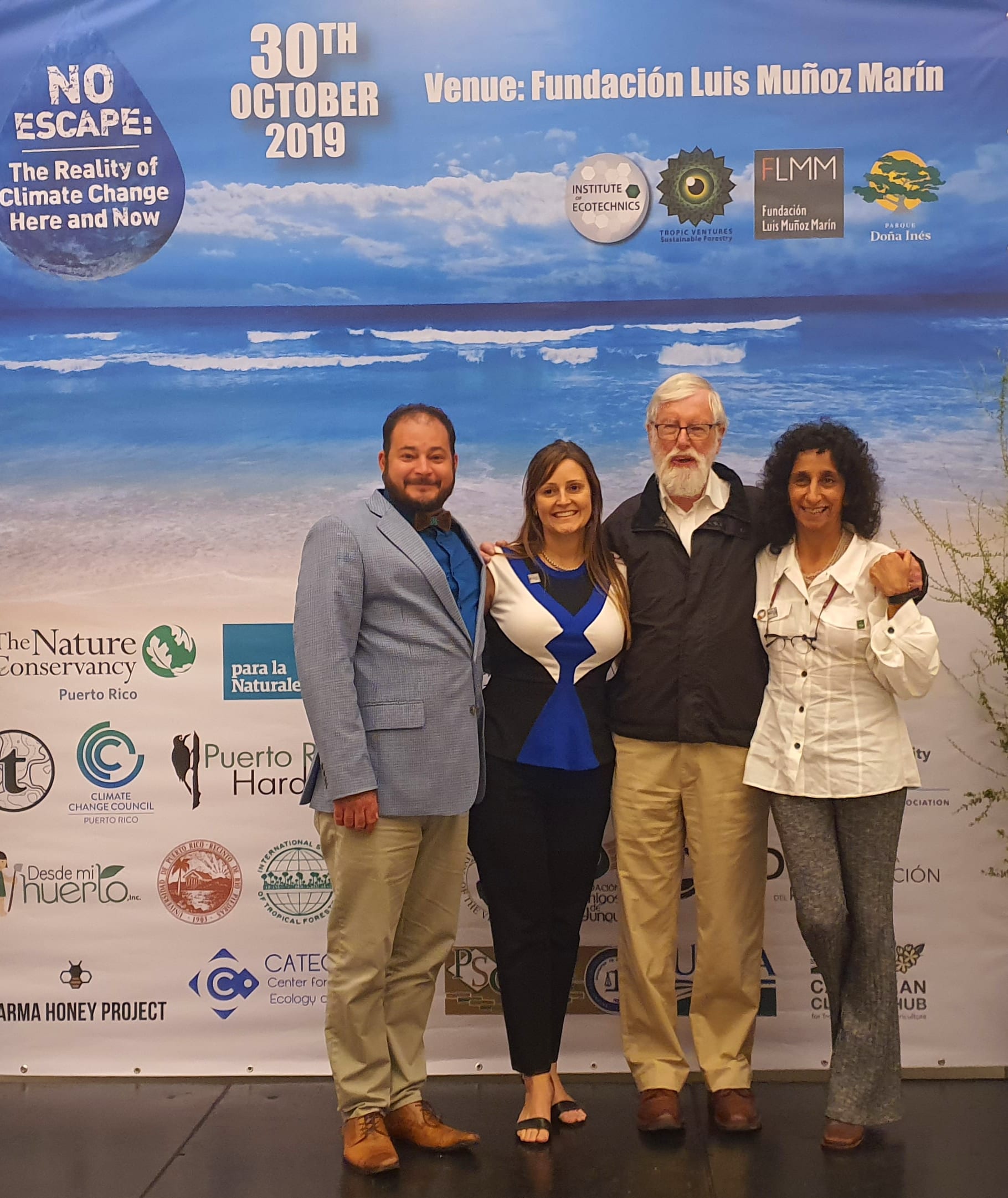
Symposium organizers, Christian Torres Santana, Cristina Cabrera, & Thrity Vakil with Sir Ghillean Prance
View Panel Discussion Online
“It is too late to stop climate change, there is a lag time. We should try and stop it, but you can recognise that when driving a speeding car on a wet road you can apply the breaks, but you’re not gonna stop immediately. We also have to deal with the effects of climate change […] agriculturally, in terms of vegetation, it will effect the trees we plant, and the trees and trees that we plant as the answers to what we do. But the ice in Antartica and Greenland will continue to melt for centuries. And the fact that is going to happen means we really need to start to think ahead. We should get a pass because while we triggered this and we have 7.6 billion people, humans have never experienced this before. Sea level has not been higher than present for 120,000 years. But just to set the stage when I say we need to think about in terms of program and practice how top be resilient and adapt which are two different things to me.
Resilient is to prepare for recovery from an event or operate through an event by better design. Adaptation is what you do to the changing baselines of temperature, sea level, and changing rainfall.” —John Englander, panel moderator, oceanographer & Founder and President of the Rising Seas Institute
Interested in learning more? Check out the FACEBOOK LIVESTREAM Links:
- “No Escape: The Reality Of Climate Change Here & Now”
Intros by Christian Torres Santana, Cristina Cabrera, & Thrity Vakil.
Speakers 8.40am to 10.40am : Mr. Ernesto Luis Diaz, Dr. Grizelle Gonzalez, Minuette Rodriguez Harrison, Hon. John Clendenin, Ms. Nancy Woodfield Pascoe, Dr. Frank Wadsworth
https://www.facebook.com/parquedonaines/videos/794825720965381/ - “No Escape: the Reality Of Climate Change Here & Now”
Speakers 11am to 12.30pm: Dr. Chris Nytch, Dr. William Gould, Sir Ghillean Prance.
https://www.facebook.com/parquedonaines/videos/532064507617292/ - “No Escape: The Reality Of Climate Change Here & Now”
Panel Discussion 1.30 to 2.30pm: Sir Ghillean Prance, Mr. Ernesto Diaz,
Hon. Larry Seilhamer, Dr. Elvira Cuevas, Fernando Lloveras.
Speakers 2.30 to 5.30pm: Dr Ariel Lugo, Dr. Katia Avilés-Vázquez, Dr. Pablo Méndez Lázaro, Agro. Christian Torres Santana, Brenda Torres, Dr. Jess K. Zimmerman, Katherine González, Edgardo González, Dr. Fernando Abruña.
https://www.facebook.com/parquedonaines/videos/779423005825855/ - “No Escape: the Reality Of Climate Change Here & Now”
Speaker 5.30 to 6.00pm: John Englander.
6.00pm Wrap-ups and Thanks.
https://www.facebook.com/parquedonaines/videos/1134579966751986/
Gathering Together for a Better Future
In October 2018, the United Nations released an unnerving report warning of the potential impacts of a rise in global temperature of 1.5 degrees Celsius or more. The special report was issued by the Intergovernmental Panel on Climate Change and was written and edited by 91 scientists from more than 40 countries, analyzing over 6000 studies.
Findings suggested that if we do not change our global economic systems drastically, continuing to let off large carbon emissions into the atmosphere, we will potentially see food-shortages, wildfires, the mass die-off of coral reefs as well as the beginnings of coastal flooding as soon as 2030. Further, it warned that the areas of the globe most vulnerable to climate change are (1) islands; (2) tropical areas; and (3) densely populated areas.
The symposium aimed to heighten the level of discussion surrounding the traumas of the climate crisis, bringing together synergistic perspectives necessary for attaining an expansive overview of the social, political and economic impacts of climate change in Puerto Rico.
It is through this collective discussion on the causes and effects of climate change that we are able to harness the ability to confront challenges head-on and elucidate our future choices, working together in attempts to cultivate a better future. Find out more about what you can do to protect our biosphere and fight climate change.
More About Institute of Ecotechnics
Institute of Ecotechnics is an International Non-Governmental Organisation that owns and operates innovative sustainable ecological projects in different biomes worldwide such as the R.V. Heraclitus, or Eye on the Rainforest, among many others. Since 1973, the Institute of Ecotechnics has developed and applied innovative approaches to harmonizing technology and the global biosphere. The field of ‘Ecotechnics’ integrates two complementary fields of study: the ‘ecology of technics’ and the ‘technics of ecology’. The Institute of Ecotechnics convenes international conferences and workshops that bring together leading thinkers, scientists, explorers, artists, and managers.
Synergetic Press’ publisher, Deborah Parrish Snyder is a Director of the Institute of Ecotechnics (www.ecotechnics.edu), helping to manage a number of the international conferences it has hosted over the years on global trends and in the field of closed ecological systems.
More About Eye on the Rainforest

Stay tuned @eyeontherainforest or eyeontherainforest.org
Recommended Books on Sustainability & Ecology from Synergetic Press
The Anthropocene: The Human Era and How It Shapes Our Planet by Christian Schwägerl
What does it mean to live in the Anthropocene? In his passionate, first-person global travelogue, Schwägerl investigates this question by visiting some of the last pristine places on Earth, exploring rising megacities and witnessing the devastation of forests and coral reefs. Melding rigorous scientific training with his experience as a journalist, he has covered high-profile political and environmental conferences and interviewed key figures influencing the course of our future. The result is this thoroughly researched, comprehensive overview of our planetary situation and outlook. Schwägerl presents tangible solutions to our global crises and shares his vision of a world that balances ecological sustainability, economic prosperity, political justice, and cultural vibrancy.
What Has Nature Ever Done for Us? How Money Really Does Grow on Trees by Tony Juniper
In What Has Nature Ever Done for Us? British environmentalist Tony Juniper points out that we think everything nature does for us—providing water, pollinating plants, generating oxygen, recycling miracles in the soil and much more—is free, but it isn’t. Its economic value can, and has been, measured. And upon realizing what that value truly is we would stop treating our natural systems in a destructive manner. The book contains impactful stories imparting warnings about unfortunate occurrences such as a rabies epidemic that followed the disappearance of India’s vultures (drugs administered to cattle killed the birds, leaving uneaten carcasses that led to an explosion of wild dogs), as well as promising and enlightening tales of how birds protect fruit harvests, coral reefs shield coasts from storms, and rainforests absorb billions of tons of carbon released from automobiles and power stations. As a result of its immediacy, Tony Juniper’s book will entirely change the way you think about life, the planet, and the economy.
